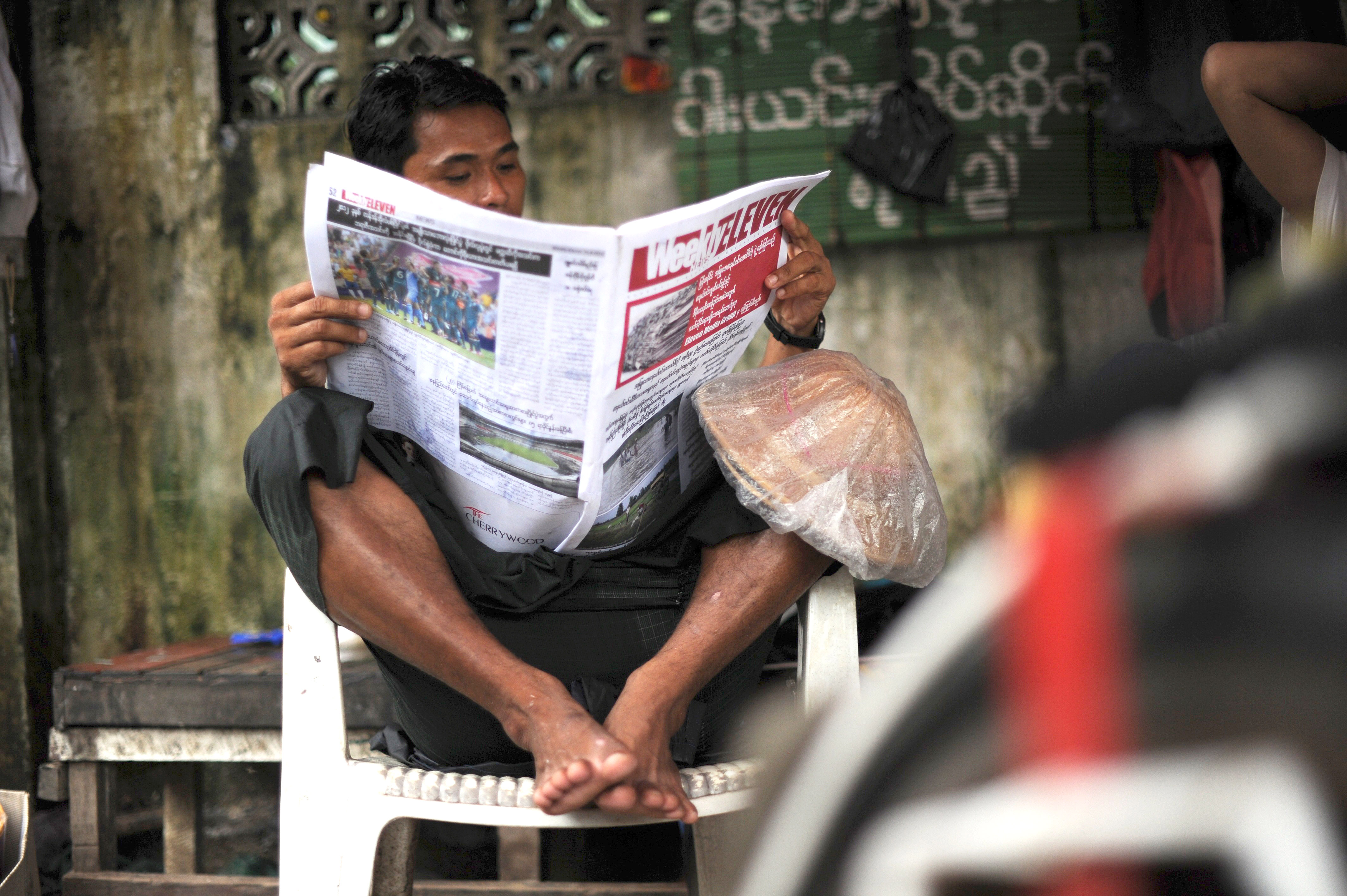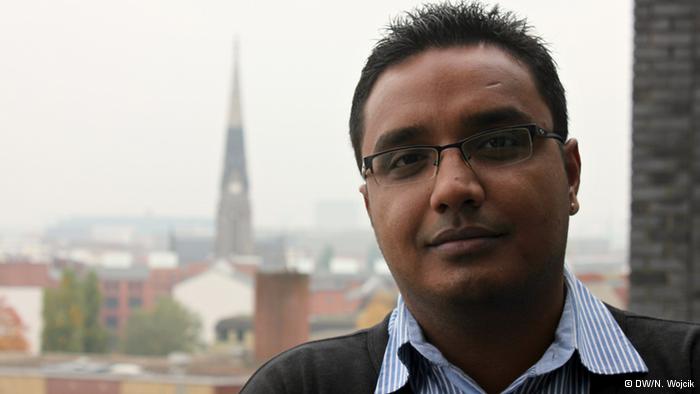Myanmar journalist cautiously optimistic about press freedom

© Soe Than WIN/AFP/Getty Images
The media landscape in Myanmar is rapidly opening up. Last year, the government ended the direct censorship of the country’s media after almost fifty years of some of the most draconian press laws in the world. Privately owned newspapers are flourishing and newspaper stands now feature on many street corners. Reporters Without Borders even talked of “historic progress” in its last report on the country’s media health.
One of the few newspapers which was allowed to be published during Myanmar’s military rule was The Myanmar Times. The paper’s managing director, Zaw Win Than, has seen many changes since he first started working there as a journalist in 2006. DW Akademie’s Nadine Wojcik asked him about the shifts in the media landscape since the military junta ended in 2011.
What have been the changes for you as a journalist?
This biggest change is that there is no more censorship. We used to have to show the censors everything – including ads – ahead of time in order to get approval. They marked stories they didn’t like which meant we couldn’t publish them. If we had, there would have been repercussions. We had so many stories that were well researched and written but we weren’t allowed to print them.
How did you react when you heard that censorship had been dropped?
Everyone, including myself, literally jumped for joy. I never thought it could happen and was amazed when it actually did. Nevertheless, even though we can now write much more freely, we still lean towards self-censorship because we’re not always sure how far we can go. My newspaper has applied for a license allowing us to publish a daily edition, but so far we haven’t received one. We don’t know why that is but the current media law isn’t very transparent. On the other hand many new newspapers are now on the market so we’re definitely on the right path.
How are the newspapers doing financially?
As far as I can tell they’re not doing very well. There’s much more competition now and due to Myanmar’s poor infrastructure it’s difficult to distribute newspapers nationwide. Still, The Myanmar Times itself is doing well and we now have more advertisements than before. This has to do with the fact that we’re a quality newspaper and that we offer both an English- and Myanmar-language edition.
What about training programs for journalists?
There aren’t really any. There is a state journalism program but I’m not impressed. Some of the graduates applied to our newspaper and when we interviewed them they in fact knew very little. What we need at this point are good journalism schools and institutes. But we can now at least take part in external trainings and international organizations have been approaching us. Through this DW Akademie project, for example, I’ve gained a number of new insights.

Zaw Win Than has worked at The Myanmar Times since 2006
In Germany many involved in the print media are afraid of competition coming from the Internet. Is this an issue in Myanmar?
Not at this point. Newspapers are still the main medium partly because there’s limited access to the Internet. In fact only two percent of the population have access and it will take at least another decade before access becomes widespread. However, like many publishing houses in Myanmar, we do have our own website but it’s not our priority.
What are your hopes for Myanmar’s media sector ?
I hope more than anything that we will have a free press and that there will be no censorship at all. Although pre-censorship has disappeared, the Ministry of Information still requires us to send them issues once they’ve been published, and so the ministry retains the right to reprehend us. We also need a transparent media law as soon as possible. The Lower House recently passed a media law but many journalists and media experts feel it doesn’t go far enough. The bill came directly from the Ministry of Information and was the exact opposite of what the independent press council had suggested. Still, I hope that Myanmar will soon have a transparent media law that truly ensures a free press.
Zaw Win Than visited Germany in October together with 10 other Myanmar journalists as part of a DW Akademie research trip to find out more about ways newspapers are developing different models to deal with the print crisis.




Feedback